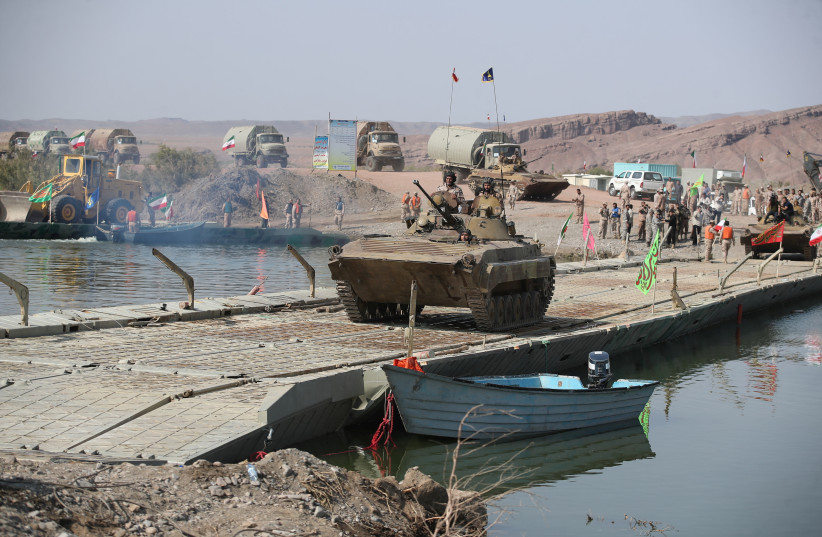Iran is expressing its concern to Azerbaijan about any changes in the border region by holding military drills in the area. Iranian regime media has emphasized this in the last several days, noting that Iran has moved its forces to the border region.
According to the reports units of the Islamic Revolutionary Guard Corps held a drill for three days, centered on the border strip of Ardabil and East Azerbaijan provinces of Iran, which border the countries of the Republic of Azerbaijan and Armenia.
Iran is concerned that Azerbaijan wants to launch an attack on Armenia and cut the border between Iran and Armenia, which would disrupt a north-south trade route and ostensibly isolate Iran between Turkey and Azerbaijan by joining a land corridor from Ankara to Baku. It’s not clear if this will happen but Iran wants to have a show of strength. Iran has accused Azerbaijan in the past of working closely with Israel, and Iran considers itself a friend of both Baku and Yerevan but has a slight preference for Armenia.
Photos from the drill show armored forces and infantry near the border. This is interesting because Iran is facing internal protests, so the IRGC being used in the drill is obviously a signal to Iran’s neighbors that Iran is not internally weak and that it is willing to defend its borders if necessary.
“Since the beginning of the Second Nagorno-Karabakh War, it was feared that as a result of this war, fundamental changes would occur in Iran's borders with Armenia and Azerbaijan, or at least the geopolitical changes resulting from this war would have many effects on the national interests and security of the Islamic Republic of Iran.”
Tasnim

Why is this area so important to Iran?
Iran says that the importance of this area for Iran is that in fact, Armenia is the gateway for the export and transit of goods from Iran to Europe, and therefore the common border crossings between Iran and Armenia are very important in Iran's economic sphere. Armenia is working on developing road and infrastructure networks that would benefit this north-south corridor. Iran says that this corridor is “actually the route for transporting commercial convoys from the Sea of Oman and the Strait of Hormuz to the north and to Europe and therefore this has a significant impact on the role and position of Iran as a powerful regional actor.”
With supply chains in the spotlight and inflation, obviously, these land routes take on greater importance. Iran has recently taken part in the SCO and CICA and other regional meetings in Central Asia, alongside Russia and China, and Tehran is keen to benefit from the tensions between the West and Russia and China.
Iran is not hiding its views today. In the past, it might have been more cautious about challenging Azerbaijan, but the pro-IRGC media said this week that “developments of the last month and the actions of the Azerbaijani army in the border region with Armenia created issues that seemed to endanger Iran's interests in the future.”
Tasnim says that “for this reason, Ayatollah Raisi, in his meeting with the President of Azerbaijan Ilham Aliyev, once again pointed out that from the point of view of the Islamic Republic of Iran, any change in the historical and geopolitical borders of the region and any change in the transit status of Iran and Armenia are rejected.”
